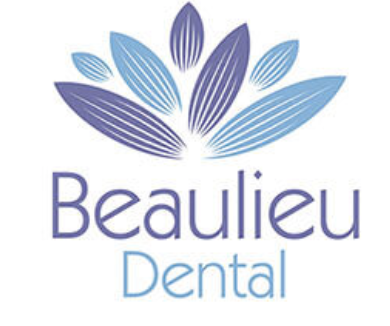A tooth extraction is the removal of a tooth from its socket in the bone. Tooth extractions are a common dental procedure but can often cause a lot of anxiety for patients. Being better informed about the extraction procedure and what to expect afterwards can often relieve some of this anxiety and help you to be better prepared for the treatment.
The most common reasons a tooth will require extraction are:
• Trauma to the tooth following a knock to the jaw from a sporting injury or fall.
• Deep decay or severe gum disease in a tooth.
• Not enough space for the teeth.
In some cases, extraction may be the only treatment option available however in other cases, alternative treatment options may be available. Your dentist should discuss any alternative treatment options with you prior to any extraction.
Extractions can be performed by your general dentist or by a dental specialist. Who performs the extraction is likely to depend on how complex the extraction is perceived to be.
Tooth extractions can be divided into two categories: Simple Extractions and Surgical Extractions. If you are in need of an emergency tooth extraction, find out more here.
Pricing:
Tooth Extraction £110 – £250
Surgical Extraction £280 – £500
Dental Implant Surgery £2400 Including Restoration
These are extractions performed on teeth that are visible in the mouth. A general dentist typically provides simple extractions, although they may be provided by an oral surgeon. These are extractions performed on teeth that are visible in the mouth. A general dentist typically provides simple extractions, although they may be provided by an oral surgeon.
The procedure is generally performed in the dental chair whilst the patient is awake.
It involves application of local anaesthetic injection to anaesthetise the tooth that will be removed. Pressure is then applied to the tooth to loosen it within its socket. Once the tooth is loose, forceps are applied and the tooth is further loosened until it can be lifted out of the socket.
In some cases, the tooth may fracture during the procedure in which case the dentist may need to remove the remaining fragment separately. This can sometimes be performed non-surgically, but at times a simple extraction may turn into a surgical extraction. In some circumstances, the dentist may choose to leave the fragment in place. Simple extractions may, on occasion, also involve the division of the tooth into parts prior to extraction to help the tooth come out more easily.
The patient feels a lot of pressure in the area as the tooth is being extracted but generally does not feel any pain. There may be some jaw discomfort from keeping the mouth open for a long period of time but frequent opportunities to rest the jaw during the procedure tends to minimise this discomfort.
Recovery time following a simple extraction can vary widely but it generally takes a few days for patients to feel back to normal. Full healing will take several weeks. Some things to remember:
• Your dentist will ask you not to rinse or spit on the day of the extraction as this can lead to early loss of the blood clot and delay the healing process.
• Smoking on the day of extractions and the days following can also lead to early loss of the blood clot and to a condition known as dry socket where normal healing is interrupted.
• A patient can generally eat normally on the day of the extraction but in some cases a soft diet may be required for 24-48 hours following the extraction.
• To help prevent infection, your dentist might also ask you to rinse with warm salt water several times a day for 4-5 days starting the day after your extraction.
Will my private health insurance cover the cost?
If you have private health insurance, it may cover some of the cost of your extraction. Trips to the dentist for examinations, scale & clean, and surgical dental procedures are included in all Medibank extras cover options. Top Extras covers you for major dental procedures such as root canals, crowns, dentures and gum disease treatment, as well as orthodontics such as braces. Waiting periods and annual limits apply.
Surgical extractions are those that are performed on teeth that are not easily accessible, such as when teeth are broken under the gum line or only partially erupted. Wisdom teeth removal is also generally a surgical procedure as these are often removed whilst they are still below the gum.
Either a general dentist or an oral surgeon can perform surgical extractions and they can be performed either under local anaesthesia in the dental chair whilst the patient is awake or in an operating theatre under general anaesthesia. Whether the procedure is performed under local anaesthesia or general anaesthesia will depend on patient and practitioner preference.
Surgical extractions involve an incision made to the gum and may or may not require the removal of bone surrounding the tooth to provide access to the tooth. The tooth is then removed in a procedure like a simple extraction. Sometimes the tooth may also need to be divided into parts to allow it to be removed more easily. Once the tooth is removed, the gum will require sutures to keep it in place as it heals.
Recovery time following a surgical extraction can vary greatly but is generally longer than a simple extraction. There is more likely to be some swelling and you are more likely to need to limit your activities (e.g. take time off work) for at least the first 24 hours following the surgery. Instructions for aftercare are generally the same as for simple extractions but a soft food diet and pain relief is more likely to be required for a few days following the extraction. Full healing is also likely to take longer, particularly if there has been bone removal.
The cost of a surgical extraction can vary widely depending on whether it is performed under local or general anaesthesia and whether bone removal or tooth division is required.
If you have private health insurance, it may cover some of the cost of your procedure. Trips to the dentist for examinations, scale & clean, and surgical dental procedures are included in all Medibank extras cover options. Top Extras covers you for major dental procedures such as root canals, crowns, dentures and gum disease treatment, as well as orthodontics such as braces. In-hospital removal of wisdom teeth is included in all levels of Medibank hospital cover. Waiting periods and annual limits apply.
- Are there alternatives to extracting my tooth? Any dental extraction should be preceded by a discussion with your dentist about the possible alternatives to extracting the tooth.
2. What will happen if I choose not to extract the tooth and decline any other treatment? The option to do nothing at all and the possible consequences of this should also be discussed. If the tooth is infected and causing pain, this is likely to persist and worsen and may lead to possible spread of the infection which may be life threatening. On the other hand, a tooth which is not infected but which is causing crowding may possibly be left in place. Each situation is unique and should be discussed with your dentist.
3. What are the options for replacing the tooth following extraction? Once the tooth is removed, you may or may not choose to replace it with a prosthetic tooth. The choice not to replace it may have consequences and these should be discussed with your dentist. Furthermore, there is a range of replacement options, each with their own risks and benefits and these should be discussed.
4. How much will the procedure cost? The expected cost of the extraction should be discussed.
5. What are the risks of the procedure? Every extraction has risks including risks of bleeding, infection and tooth fracture. Additional risks may be present depending on the individual case and should be discussed with your dentist.

